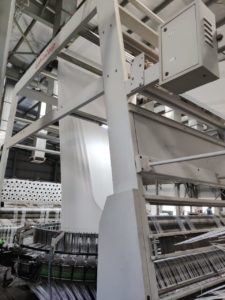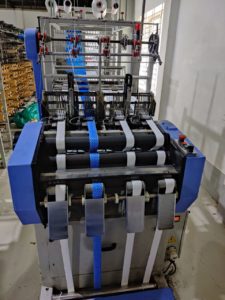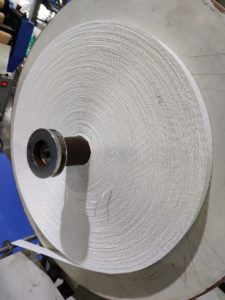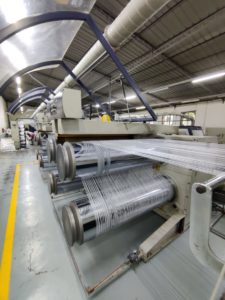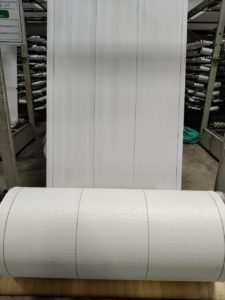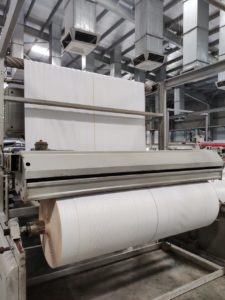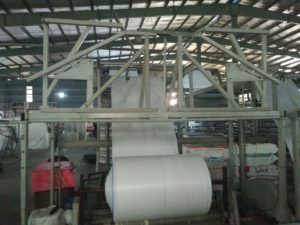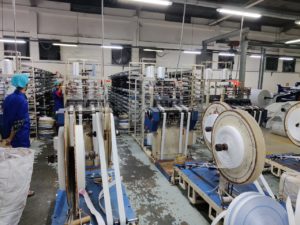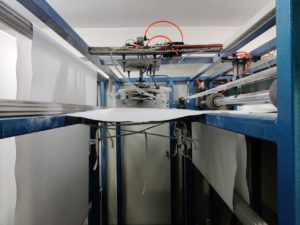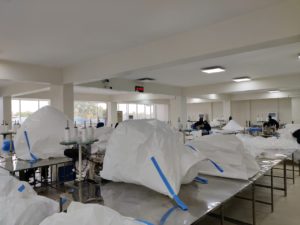Manufacturing Process
A GENERAL OVERVIEW OF THE BULK BAG / FIBC
Manufacturing Process
01 - EXTRUSION
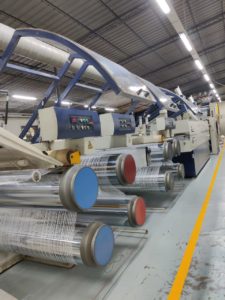
In an extrusion facility, a mixture of virgin polypropylene granules, UV inhibitor, calcium carbonate, and occasionally colour pigment is melted and transformed into tapes. These tapes are wound on bobbins of the desired size at the end of the extrusion line. This is the initial step in the process, and it determines the tape’s tensile strength.
02 - WEAVING
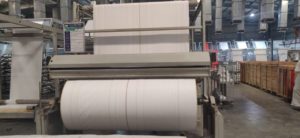
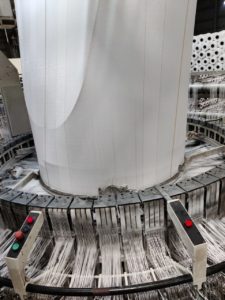
The circular/tubular weaving loom is loaded with extruded tape bobbins. The tapes will be woven into fabric that meets the required specifications and sizes, and then rolled into rolls. Not only for the body of the FIBC, but also for the fill and discharge components, these woven materials are used.
03 - LAMINATION / COATING (OPTIONAL)
To form a moisture barrier, polypropylene fabric is laminated with a semi-clear PP film that is glued to the woven material. This is an optional step based on the customer’s needs.
04 - CUTTING
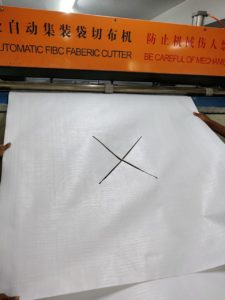
The fabric in rolls is cut to a precise size using an automatic cutting machine. This automated procedure is used to improve cut size accuracy.
05 - PRINTING
The body fabric panels are sent through a printing machine, which imprints a design on the cloth.
06 - WEBBING
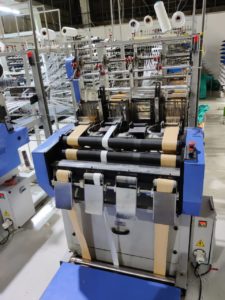
Heavier polypropylene tapes along with multifilament thread are woven into webbing which forms the lift loops of the FIBC.
07 - SEWING
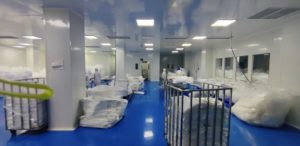
All of the components necessary to make the bulk bag are gathered in one place. Highly experienced and trained labourers combine the parts to produce a FIBC or bulk bag under the guidance of technically certified supervisors.
08 - INSPECTION
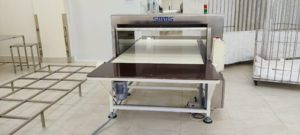
A technically certified individual from the quality control department will inspect each and every bag produced to guarantee that it is safe to use.
09 - PACKING / BALING / PALLETIZING
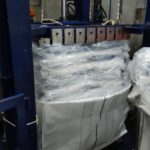
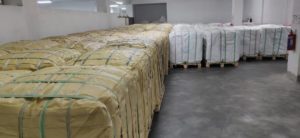
Following production of the bags, they are inspected, tested and compressed using a press and neatly packed according to the customer’s specifications.
10 - STORAGE
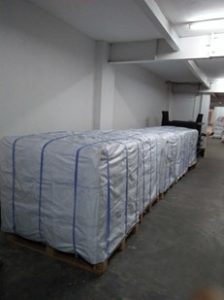
The bags are promptly relocated to a clean storage room after they have been baled/palletized, ready to be shipped.

